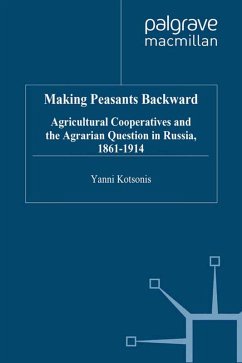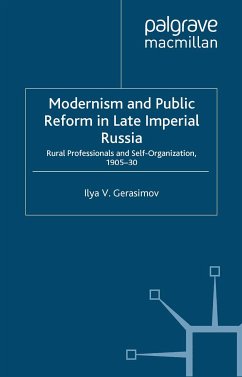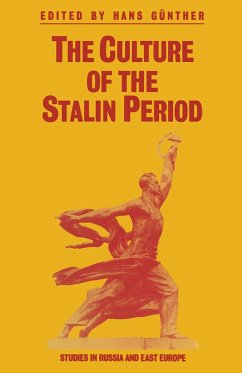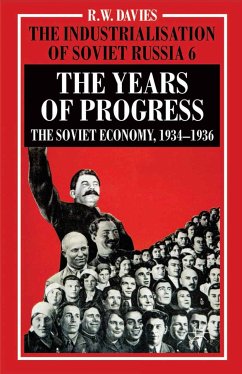
Making Peasants Backward (eBook, PDF)
Agricultural Cooperatives and the Agrarian Question in Russia, 1861-1914
Versandkostenfrei!
Sofort per Download lieferbar
72,95 €
inkl. MwSt.
Weitere Ausgaben:

PAYBACK Punkte
36 °P sammeln!
In this first monograph on the Russian cooperative movement before 1914, economic and social change is considered alongside Russian political culture. Looking at such historical actors as Sergei Witte, Piotr Stolypin, and Alexander Chaianov, and by tapping into several newly opened Russian local and state archives on peasant practice in the movement, Kotsonis suggests how cooperatives reflected a pan-European dilemma over whether and to what extent populations could participate in their own transformation.
Dieser Download kann aus rechtlichen Gründen nur mit Rechnungsadresse in A, B, BG, CY, CZ, D, DK, EW, E, FIN, F, GR, HR, H, IRL, I, LT, L, LR, M, NL, PL, P, R, S, SLO, SK ausgeliefert werden.












